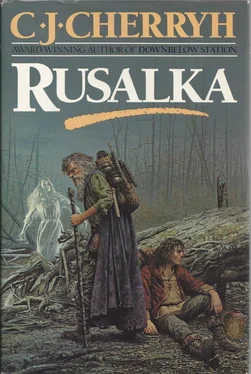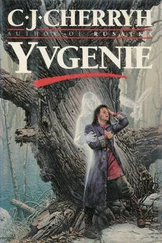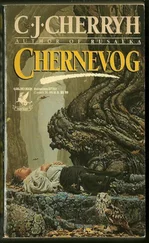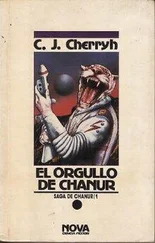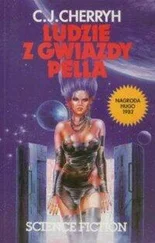Perhaps, he thought, the wood was too damp, even the driest he could find; or perhaps it was because in his heart of hearts he knew that fire was the one spell he most feared, fire had killed his parents, fire was his curse and his worst luck, and he was direly afraid of it, even as desperate as they were.
“I’m sorry,” he said, panting, and Pyetr said:
“Boy, stop, your hands are bleeding. You’ll get nowhere.”
At least he was warm. He had that to lend. They shared the coat. Pyetr avowed he was not in so much misery this night, and that he would be better in the morning; perhaps, Pyetr said, they would get up early, and walk in the last of the night, when it was coldest, and sleep during the day, hereafter, when it was warmest.
But the last of the night seemed the only sleep Pyetr had gotten, and the road was tangled, and it seemed to Sasha the height of folly to go walking by dark, when they might lose the road and with it, whatever hope they had.
So he said nothing; and Pyetr said nothing the next morning about their being late on their way. Pyetr took a long time getting on his feet, sweated when he had done so and remarked that the morning was warmer than the last, when in fact Sasha felt no such thing and saw their breath frosting in the dawn.
Increasingly Sasha had a feeling of doom and disaster in their circumstances, while Pyetr once again began to talk disjointedly about Kiev, about the Great Tsar’s court, about elephants and rocs, and golden roofs and how his father had seen the tsar once, and how his father had been a trader’s son, and his grandfather had come out of the great east with a caravan; but of a mother Pyetr never spoke and Sasha finally asked:
“Had you no aunt or anything?”
“No,” Pyetr said lightly, lying, Sasha was sure. “I didn’t need one. My father got me in a dice-game.”
“That can’t be so.”
“Ah,” Pyetr laughed, but thinly, hard-breathing as they walked along the way. “The lad knows something, at least. Had you ever a lover, boy?”
“No.”
“Not even a stray thought, yet?”
“No.” It was embarrassing. It made him sound the fool. “There just weren’t so many people.” That was hardly right either. The Cockerel was full of neighbors. “At least—not my age.”
“No girls.”
“No girls.”
“There’s the tanner’s daughter—Masha…”
He felt his face burn, and supposed that Pyetr and his friends had scouted all the town.
“Or the brewer’s girl,” Pyetr said. “—Katya, isn’t it? With the freckles?”
“No,” he said miserably.
“Not one.”
“No, Pyetr Illitch.”
“No wizardess, eh?”
“No,” Sasha said, shortly this time. “What girl would have my luck?”
“Ah,” Pyetr said, with a sudden little frown, as if the whole matter were news to him. And Pyetr nudged him suddenly with his elbow. “But if you had money, you could have a curse and warts and you’d have every father in Vojvoda pushing his daughter at you. And one sees no sign of warts.”
The warmth stayed in Sasha’s face. He knew it was red and he was glad of the forest shadow.
“The girls in Kiev,” Pyetr said, and stopped, and put his hand on a tree trunk, saying nothing for a while, while Sasha stood there helplessly. “Damn!” Pyetr breathed finally.
“Pyetr, let me look at it. Let me see if I can do anything.”
“No!” Pyetr said; and more quietly, on a second breath: “No. I’ll be better—it’s just a stitch. They come and they go.”
Sasha had a terrible cold feeling of a sudden, not in the night this time, when things were always unreasonable, but by plain daylight, and all Pyetr’s jokes had no power to dispel it.
“Let me see the bandages,” he said. “Pyetr, please.”
“No.”
“Don’t be a fool. Please let me help you.”
“It’s all right, dammit, let me alone!” Pyetr shoved away from the tree, walked again with his sword for a cane, not the Pyetr who had defied aunt Ilenka with a flaunt of his cap, but a tired, hurting man with his shoulders hunched and his steps short and unsteady.
Please the god, Sasha thought, and wished Pyetr Illitch well with all the strength he had, for once completely sure of what he wanted and with no doubt in him that it was right to wish.
And perhaps Pyetr was right and he was only a silly fool, because it did not seem Pyetr was any the better for it, not immediately and not for hours afterward. The only thing that could be said was that Pyetr stayed on his feet, walking slowly, and that Pyetr seemed to have no more such pangs, but Sasha had not the least idea whether that was a good sign or bad.
He could not make fire, he could not find so much as a minnow in the ice-filmed brooks they met, he found few berries and not a fluff of fur or a feather of any game in these woods.
Everything was dead. It was that time when the winter died, and much else did, and spring was not yet alive; it was the month for ghosts to walk and the sick and the old to die, and for ill luck and unseasonable storms and for fevers to set in and aches to find old wounds: that was what the townsfolk always said; and the last night before the turn toward spring, the towns-women would go out and unbraid their hair and shake out the knots from their belts and their laces and plow a trench about the walls of Vojvoda, beating on drums and calling on the Lady, at which time every male creature took cover and stayed there till dawn; excepting wizards, who were exempt, and who also beat on drums and spoke to the gods and the friendly spirits to guard the sick in this terrible season.
But Pyetr had only a borrowed coat and a boy with notoriously bad luck, and if there was a place in the land unblessed it was this forest, which, far from having the outlaws and the wild beasts they had feared, had only dead trees and dying bushes, barren ground and lifeless brooks.
If there was even a Forest-thing here, Sasha could not feel it; and secretly that night he took a few berries and a few grains and put them on a dead leaf and said, beneath his breath, while Pyetr was washing, “Please don’t let us be misled. Please don’t let Pyetr stumble, it hurts him. Please get us to some friendly place.”
It seemed too little an offering to appease a remote and un-hearing spirit, which might well be hostile or itself as unhealthy as its forest. So Sasha took a thorn and pricked his finger and squeezed out the blood until it fell in heavy drops. He had heard of sorcerers doing the like. He had heard of terrible things that could go wrong, once blood was in an offering, how there were things that liked it all too well.
“What in the god’s name are you doing?” Pyetr asked him, from the stream side where they had stopped to rest, and he was afraid Pyetr would say something to offend the spirits of the place, so he said, desperately,
“Looking for roots.”
“You’re not likely to find any,” Pyetr said cheerlessly, in the same moment that Sasha realized that he had just lied at the very worst of times; and that if he had called the wrong thing to hear him there was all too much blood in their company.
Jinx, he thought, accusing himself.—Oh, Father Sky, keep wrong things away from us. Pyetr never meant to hurt anybody. Pyetr doesn’t deserve this trouble.
But Father Sky was not a god to trouble himself often, especially not for scoundrels and fugitives in trouble, and it was too much to expect that Father Sky would save a fool from his folly, for whatever it was worth.
PYETR SLEPT, at least, laid his aching head down on his arm and waked in the morning in somewhat less pain than he had been feeling. That encouraged him for a moment, until he heard the crack of thunder and saw the forbidding gray of the sky.
Читать дальше
